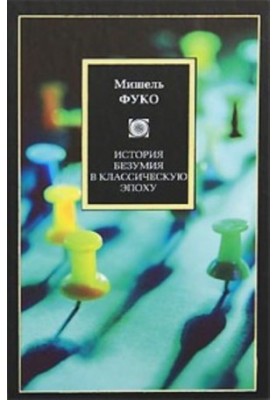The History of Madness in the Classical Era
 Instant download
Instant download
after payment (24/7)
 Wide range of formats
Wide range of formats
(for all gadgets)
 Full book
Full book
(including for Apple and Android)
The History of Madness in the Classical Era is one of the most famous works of the French philosopher and sociologist Michel Foucault, released in 1961. This book, imbued with deep reflections on the nature of reason and insanity, offers the reader a unique perspective on how society has perceived and treated mental disorders in different historical eras. Foucault, known for his critical approach to power and knowledge, explores how the concept of insanity was shaped and changed in the context of cultural, social, and political factors. The book begins with an analysis of how in the Middle Ages madness was perceived as something mystical and divine. Foucault shows how, during this period, insane people were often considered possessed by spirits, and their behavior was explained through the prism of religious and mythological concepts. However, with the advent of the Renaissance and the transition to the classical era, madness begins to be considered as a social deviation, which leads to its isolation and stigmatization. The reader is immersed in an exciting journey through the pages of history, where each turn reveals new aspects of human nature and social order. This book will be of interest not only to specialists in psychology and sociology, but also to anyone who seeks to understand how historical contexts shape our perception of norms and deviations. Young researchers, students of humanities and lovers of philosophy will find in it a lot of topics for reflection. Foucault raises important questions about power, control, and identity, forcing the reader to reflect on how our society treats those who go beyond conventional norms. The topics that Foucault raises remain relevant in the modern world. It explores how public institutions such as psychiatry shape our understanding of insanity and how this understanding affects people's lives. The book also examines how insanity has become an object of medical and scientific study, and how it has led to the creation of various control and isolation systems. Foucault not only criticizes existing practices, but also invites the reader to think about how we can change our perception and attitude towards mental disorders. Foucault's style is distinguished by depth of analysis and complexity of presentation, which makes his work a real intellectual challenge. His other notable works, such as Words and Things and Surveillance and Punishment, also explore themes of power and knowledge, but The History of Madness in the Classical Era stands out for its focus on mental health and its historical context. By reading this book, you not only immerse yourself in the world of philosophical reflection, but also get the opportunity to see how historical changes affect our understanding of human nature. If you are looking for literature that will force you to reconsider your views on insanity, societal norms, and the role of power in identity formation, The History of Madness in the Classical Era will be a real find for you. This book not only enriches knowledge, but also provokes thinking about how we can change our society so that it becomes more inclusive and understanding. Do not miss the chance to meet one of the most influential thinkers of the 20th century and his unique view of the world.
LF/337937475/R
Data sheet
- Name of the Author
- Мишель Фуко
- Language
- Russian
- Series
- Philosophy
- ISBN
- 9785170603459
- Release date
- 2010









